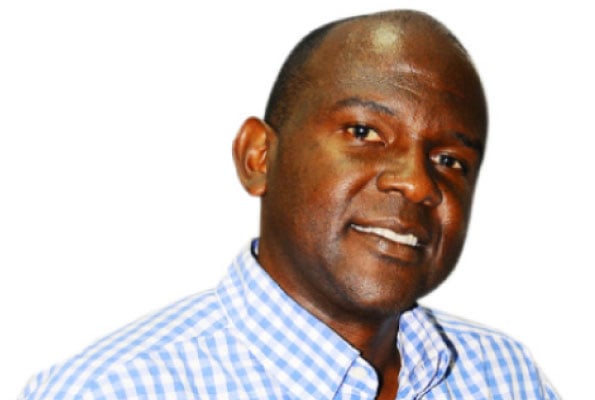Prime
Terrorism: How governments milk this crisis

Author: Nicholas Sengoba. PHOTO/FILE/COURTESY
What you need to know:
The hope of the terrorist is that this, in the long run this will alienate the government from the people and may be cause an uprising someday.
It is reassuring to hear a President say that terrorists will be defeated.
But terrorists like the ADF who are accused of carrying out deadly attacks at various locations in Kampala have no realistic aim of taking power.
They are already a defeated entity and that is why they fight after the fashion of the weak man.
Their struggle is of a nuisance value intended to annoy and force the government and the State to take irrational decisions. Such actions may be excessive in nature giving the government a bad name.
The hope of the terrorist is that this, in the long run will alienate the government from the people and may be cause an uprising someday.
So they hit and run, leaving death and destruction in their wake. The government that is often caught off guard will then act hastily to show that it is in control.
It will seek Machiavellian vengeance to finish off the terrorists once and for all, while sending out a brutal message of what awaits whoever nurses such ideas.
Any act of terror creates a crisis because people are injured and die, leaving citizens in a state of fear. Somehow, this is justified because the government that is supposed to protect them is made to appear vulnerable and ineffective whenever people die in an attack.
As such one would think that acts of terror are entirely loathed by the powers that be. Verbally governments strongly condemn acts of terror. But in practice most of them seem to quietly acquiesce to these times as open windows for mischief, since they provide legroom for things that may be abhorred in times of tranquility.
One of the most crucial aspects of governance that goes south during the war on terror is the social contract. No serious person will ask about the government’s electoral promises, when terrorism is providing an existential threat to the people.
Debating the terror threat may preoccupy the minds of the people leaving the government to go scot free without delivering on its mandate. It then has a licence to behave strangely.
So if the executive arm of the government goes to Parliament with a huge budget for security, which may necessitate allocating money from other sectors, whoever questions it will be asked ‘don’t you see we are fighting terrorism?’
When asked for accountability, the response is that the expenditure is classified. The plausible sounding argument is that providing details may expose individuals and methods of fighting terrorism.
The government may use this window to enact emergency laws or change the Constitution to be more effective. It may opt to detain for long periods without trial, individuals especially those who oppose it. Queries by human rights activists and the public will be met with the same, ‘we are fighting terrorism to protect you,’ song.
In many countries, organisations, especially religious groups, NGOs and business the State does not like, have been raided and closed down. The reason, ‘we are fighting terrorism.’
Similarly many have lost property and money to especially rogue state agents. These may cook up ‘intelligence,’ that shows that people have acquired wealth through organisations or individuals intending to finance terror. They will blackmail them, taking their valuables as a ransom.
It is also on the same pretext of fighting terrorism that the State may shoot and kill those it deems a danger to society. It is in this window that those who oppose the government may be conveniently put out of action.
The avenue of due process in the courts of law then becomes an unlikely option viewed as a waste of time and resources in the bid to protect the people. Likewise it may be used as a licence to curtail basic human freedoms like the right to assemble, or to move from place to place. In case of an election the police takes shelter under intelligence that ‘there is an imminent terror threat,’ to stop particular groups from holding campaigns.
Elections may even be postponed indefinitely so that there is maximum concentration of efforts on the war against terrorism.
Equally, one may conveniently be accused of frustrating government efforts to fight terror if they criticise its actions. Worse still they may be ridiculously pinned down for ‘demoralising’ security agencies as they fight in tough conditions.
It is during these times that the State may create jobs for its favoured people and sack others in an attempt to supposedly boost efficiency in fighting terror. Globally it is the time for the world powers that finance these poor countries to shift from demanding for accountability to providing more donor funding. This funding may include military assistance which the government may use to strengthen its position and crack down on those who oppose it.
Governments may go on to deploy forces outside the country even without parliamentary approval. Because these are times of crisis, it will be ‘understood.’ Uganda is already mooting the idea of going into the Democratic Republic of Congo to ‘fight the ADF.’
We may recall that Uganda once deployed its army in the Congo and ended up being accused of looting minerals from that vast mineral rich country.
Currently one of Uganda’s leading exports is now gold despite the fact that Uganda does not have substantial deposit of the same expensive mineral. One can only imagine what temptation the war of terror is laying in front of Uganda.
That is how the sordid war on terror has the potential of metamorphosing into something very lucrative. Clever governments know this all too well.
Not every crisis is bad after all.
Mr Sengoba is a commentator on political and social issues
Twitter: @nsengoba




